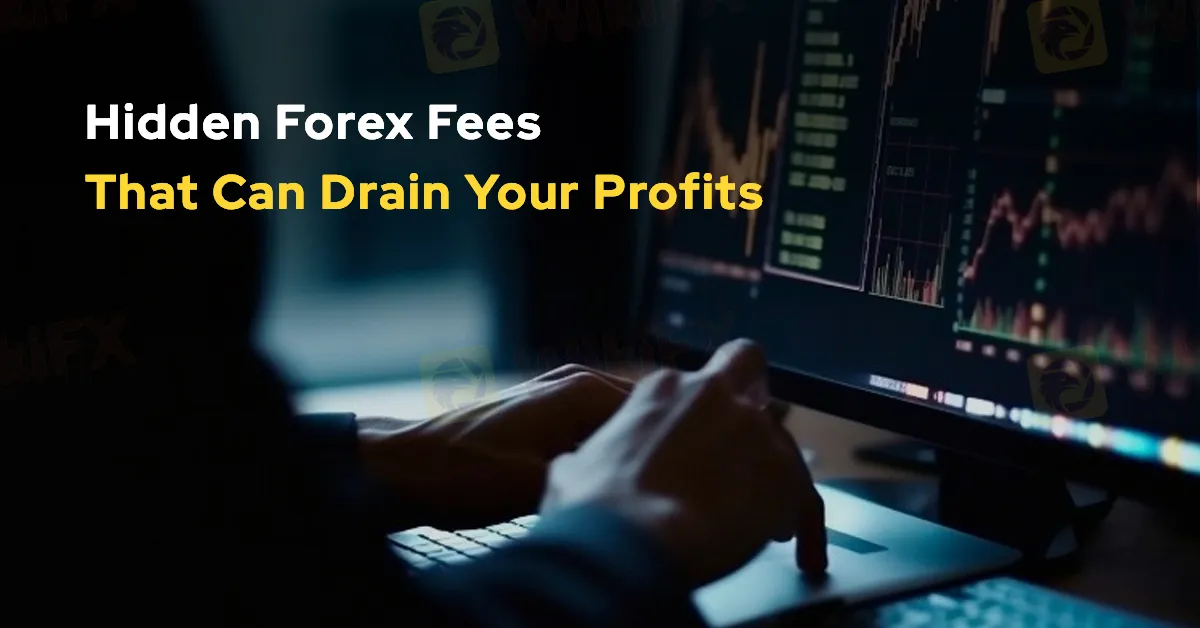Hidden Forex Fees That Can Drain Your Profits
Abstract:Many traders focus on profits when entering the forex market. However, the costs of trading can silently eat into those profits. Brokers often advertise low fees and tight spreads, but hidden costs can add up. Understanding these fees is crucial for managing your trading expenses.

Many traders focus on profits when entering the forex market. However, the costs of trading can silently eat into those profits. Brokers often advertise low fees and tight spreads, but hidden costs can add up. Understanding these fees is crucial for managing your trading expenses.
The spread is one of the most obvious costs in forex trading. This is the difference between the buying and selling price of a currency pair. Brokers widen spreads during volatile market conditions or news events. Traders who rely on high-frequency strategies may find these increased spreads significantly affect their profits.

Another common fee is the overnight swap. This charge applies when a trader holds a position overnight. It is based on the interest rate difference between the two currencies being traded. Positive swaps can sometimes earn traders money, but negative swaps are more common. Swap rates vary between brokers and currency pairs, so traders should always check the rates before holding positions long-term.
Commissions are another expense. Some brokers charge a fixed commission for each trade instead of marking up spreads. While this model can be transparent, it often targets traders with large trading volumes. Adding these commissions to other costs can make trading more expensive than expected.
Slippage is a hidden cost that many traders overlook. It occurs when a trade is executed at a different price than expected. This usually happens during periods of high market volatility. Even a small amount of slippage can add up over multiple trades. Traders should use tools like limit orders to reduce the impact of slippage.
Deposit and withdrawal fees are another consideration. Many brokers offer free deposits, but some charge fees for withdrawals. These fees can vary depending on the payment method or the currency being withdrawn. Traders should read the broker's terms carefully to avoid surprises when withdrawing funds.
Inactive accounts can also lead to fees. Brokers often charge inactivity fees if a trading account is left unused for a certain period. These fees can drain your account balance over time. Checking the brokers policy on inactivity is essential for part-time traders.
Currency conversion fees may apply when trading accounts and deposits are in different currencies. Brokers often charge a conversion fee to process these transactions. This fee can be avoided by using accounts denominated in the same currency as your deposits.
Finally, traders should consider the cost of leverage. High leverage increases the risk of losing more than your initial deposit. Brokers offering high leverage often include additional fees in the form of margin interest. Managing leverage wisely can help reduce these costs.
Forex trading can be profitable, but it is important to understand all potential costs. Hidden fees like spreads, swaps, slippage, and commissions can erode your earnings. By choosing the right broker and staying informed, traders can minimise these expenses and protect their profits. Want to do this in an efficient manner? Simply download WikiFX from Google Play or App Store to have all broker-related information at your fingertips!

Read more

Why You Shouldn't Be Afraid to Trust Your Capital to Regulated Brokers
Discover why regulated brokers offer safety for your capital with oversight, security, and transparency, plus the risks of unregulated options. Invest with confidence.

PrimeXBT Expands with Stock CFDs for Major Global Companies
PrimeXBT introduces stock CFDs, allowing trading of major US stocks like Amazon, Tesla, and MicroStrategy with crypto or fiat margin options.

TRADE.com UK Sold to NAGA Group Amid 2024 Revenue Drop
TRADE.com UK sold to NAGA Group for £1.24M after a 65% revenue drop and £346K loss in 2024, marking NAGA's UK return.

Prop Trading Firms vs. CFD Brokers: Who’s Winning the Retail Trading Race?
In recent years, a new breed of retailer-focused trading firms has emerged: proprietary (prop) trading outfits that recruit individual traders to trade the firm’s capital under structured rules. Boasting low entry costs, clear risk parameters, and profit-sharing incentives, these prop firms are rapidly winning over retail traders, many of whom previously traded Contracts for Difference (CFDs) with established online brokers. As prop trading revenues accelerate, a key question arises: Are CFD brokers losing business to prop firms?
WikiFX Broker
Latest News
Germany’s April PMI Falls Below 50 as Service Sector Stumbles
PayPal Opens Regional Hub in Dubai, Expands Middle East Reach
FINRA fines SpeedRoute for alleged rule violations
RM15,000 Profit Turned into RM1.1 Million Loss for Engineer!
New to FX Trading? Stop! Read These Warnings First
Prop Trading Firms vs. CFD Brokers: Who’s Winning the Retail Trading Race?
TRADE.com UK Sold to NAGA Group Amid 2024 Revenue Drop
Why Binance Tightens Crypto Transfer Rules for South Africans?
Coinbase Eyes U.S. Federal Bank Charter for Crypto Growth
Why People Fall for Online Trading Scams
Rate Calc
